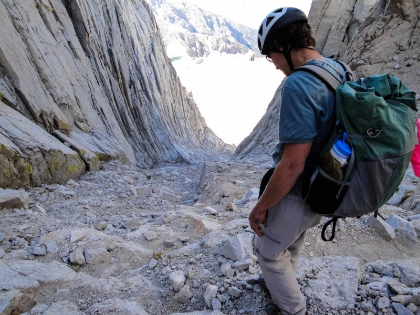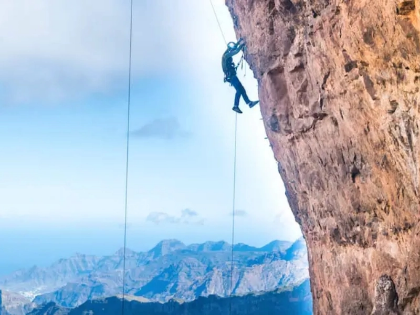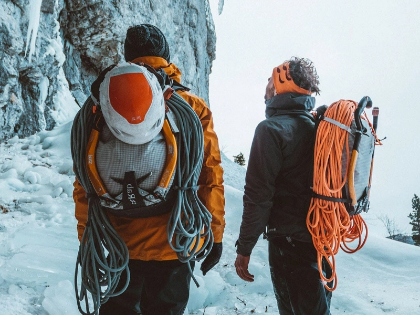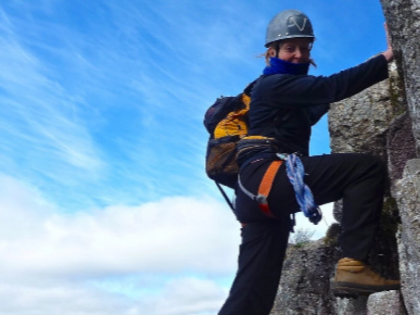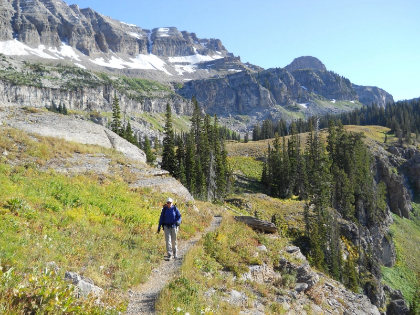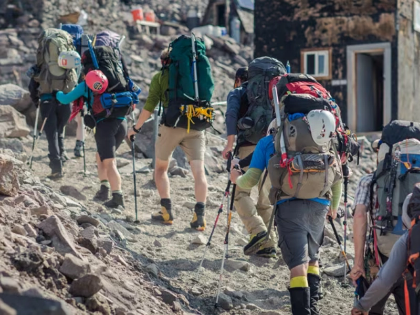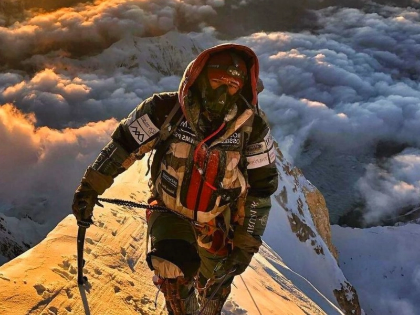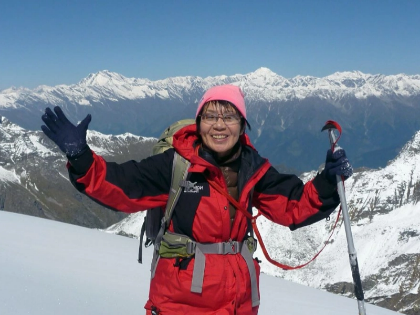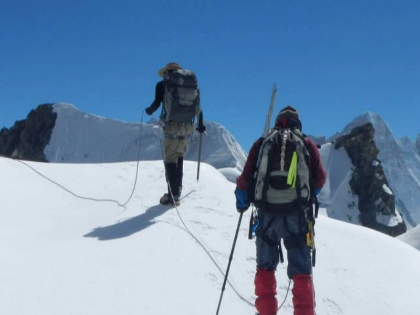Why is Mountaineering Difficult?
Mountaineering requires you to maintain a variety of balances. For instance, you must strike a balance between having highly developed technical skills and having the emotional toughness required to go through challenging circumstances. You have to realize that this is a lifelong endeavor. It takes more than just spending weeks or months camped out in the mountains to become a mountaineer.
Physical fitness
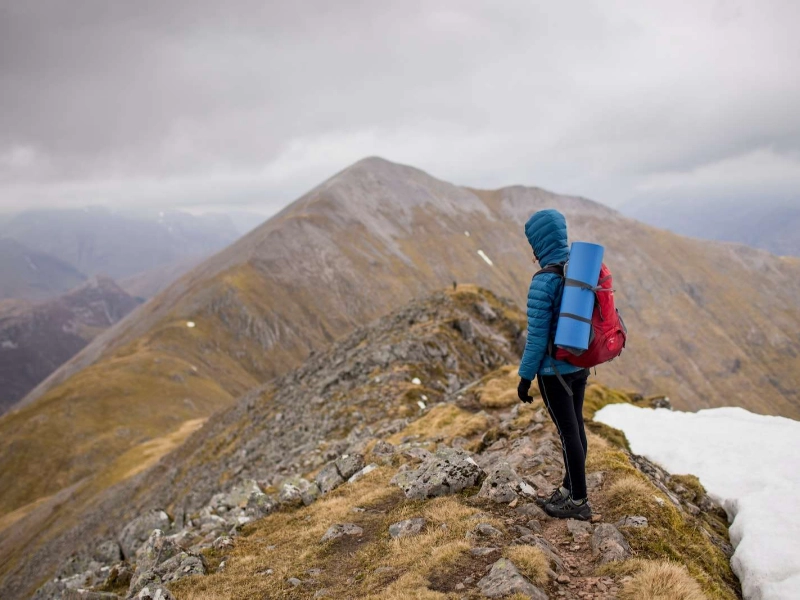 A strenuous sport that tests the body and mind is mountaineering. Pushing oneself to the limit and being able to accept defeat requires strong mental fortitude. A strong physical constitution is also necessary to climb for hours at a time while toting a bulky backpack.
Developing aerobic capacity through regular exercise is the best way to prepare for mountaineering. Swimming, cycling, and running are all excellent choices. Exercises like CrossFit and HIIT that focus on quick power bursts are also beneficial. Developing your upper-body strength should also be a priority.
In contrast to certain other sports, mountain climbing is frequently painful. You might have to sleep on a rock or in your backpack, and the temperature can drop to an unbearable level. It is crucial to learn how to feel at ease in alpine environments because creature comforts such as a cozy bed or warm shower are nonexistent there.
A strenuous sport that tests the body and mind is mountaineering. Pushing oneself to the limit and being able to accept defeat requires strong mental fortitude. A strong physical constitution is also necessary to climb for hours at a time while toting a bulky backpack.
Developing aerobic capacity through regular exercise is the best way to prepare for mountaineering. Swimming, cycling, and running are all excellent choices. Exercises like CrossFit and HIIT that focus on quick power bursts are also beneficial. Developing your upper-body strength should also be a priority.
In contrast to certain other sports, mountain climbing is frequently painful. You might have to sleep on a rock or in your backpack, and the temperature can drop to an unbearable level. It is crucial to learn how to feel at ease in alpine environments because creature comforts such as a cozy bed or warm shower are nonexistent there.
Mental fitness
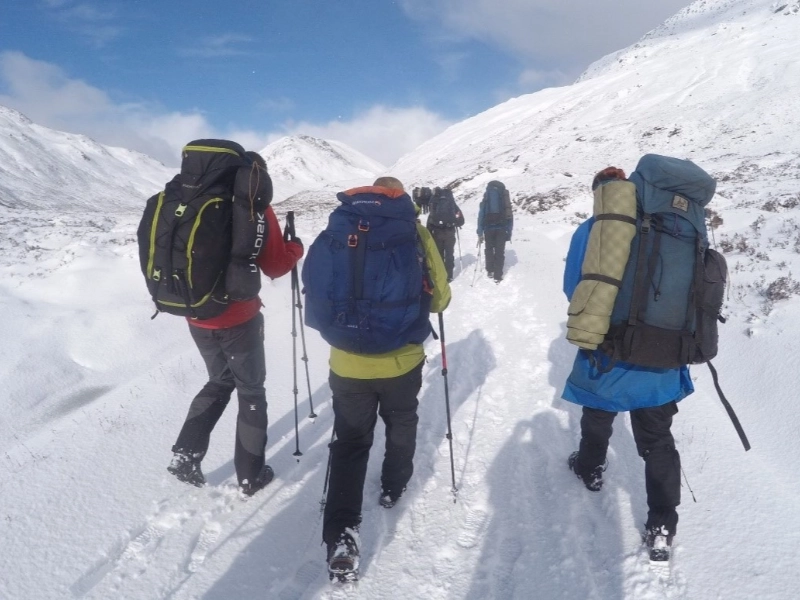 Mountaineering is challenging on many levels; it calls for technical expertise, mental toughness, and physical fitness. The demands of an advanced climb can be very demanding, and if you're not fully concentrated, you could make fatal mistakes that could endanger your life.
To improve their chances of success, mountaineers must psychologically prepare for their routes before doing them. Climbing, exercise, repetition, and visualization are the most efficient ways to achieve this. Until you reach the desired result, visualize every handhold, foot placement, and movement. Continue doing this until you're comfortable and prepared to take on your next ascent.
Correcting muscular imbalances is a crucial component of mental preparation. A climber may sustain an injury if they have tight muscles on one side of their body, despite their extreme strength. You can prevent this problem by exercising in a balanced way.
Mountaineering is challenging on many levels; it calls for technical expertise, mental toughness, and physical fitness. The demands of an advanced climb can be very demanding, and if you're not fully concentrated, you could make fatal mistakes that could endanger your life.
To improve their chances of success, mountaineers must psychologically prepare for their routes before doing them. Climbing, exercise, repetition, and visualization are the most efficient ways to achieve this. Until you reach the desired result, visualize every handhold, foot placement, and movement. Continue doing this until you're comfortable and prepared to take on your next ascent.
Correcting muscular imbalances is a crucial component of mental preparation. A climber may sustain an injury if they have tight muscles on one side of their body, despite their extreme strength. You can prevent this problem by exercising in a balanced way.
Technical skills
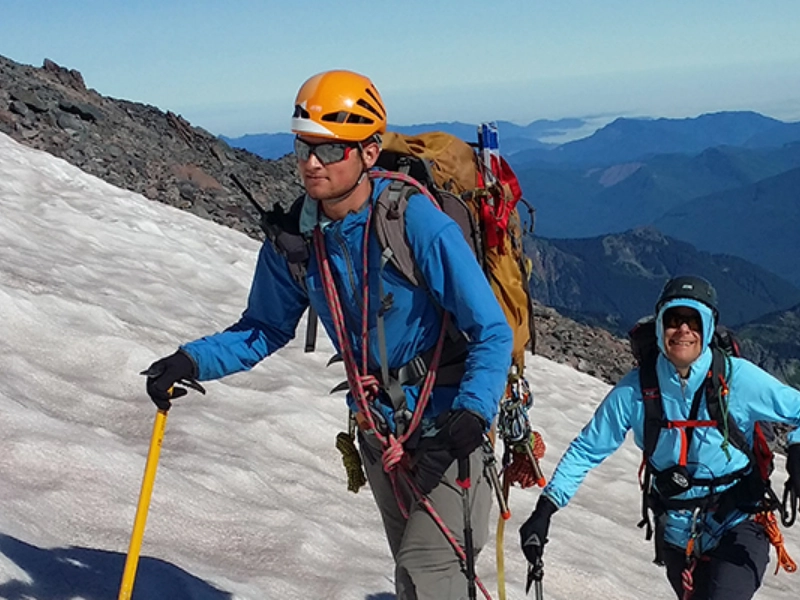 Advanced mountaineering abilities, such as tenacity, bravery, knowledge, skill, and meticulous planning, are needed to climb challenging summits. These peaks are frequently so far away that the only ways to get there are either trekking or fly-in expeditions, which necessitate weeks of high-altitude travel.
On a challenging mountain, problems might arise for even the most prepared and skilled climbers. Even experienced mountaineers find it difficult to reach the summit because of the erratic terrain and often changing weather.
You should begin mountaineering on lesser peaks and work your way up to more difficult ones in order to improve your chances of success. You will learn vital skills in solid mountaineering training, like glissading, step-kicking, and plunge-stepping for snow travel. This will enable you to navigate icy slopes more quickly and safely and prevent falls that can cause serious harm or even death. The principles of self-belay and ice climbing should also be taught to you, along with how to utilize different mountaineering tools like ice axes, ropes, and harnesses.
Advanced mountaineering abilities, such as tenacity, bravery, knowledge, skill, and meticulous planning, are needed to climb challenging summits. These peaks are frequently so far away that the only ways to get there are either trekking or fly-in expeditions, which necessitate weeks of high-altitude travel.
On a challenging mountain, problems might arise for even the most prepared and skilled climbers. Even experienced mountaineers find it difficult to reach the summit because of the erratic terrain and often changing weather.
You should begin mountaineering on lesser peaks and work your way up to more difficult ones in order to improve your chances of success. You will learn vital skills in solid mountaineering training, like glissading, step-kicking, and plunge-stepping for snow travel. This will enable you to navigate icy slopes more quickly and safely and prevent falls that can cause serious harm or even death. The principles of self-belay and ice climbing should also be taught to you, along with how to utilize different mountaineering tools like ice axes, ropes, and harnesses.
Equipment
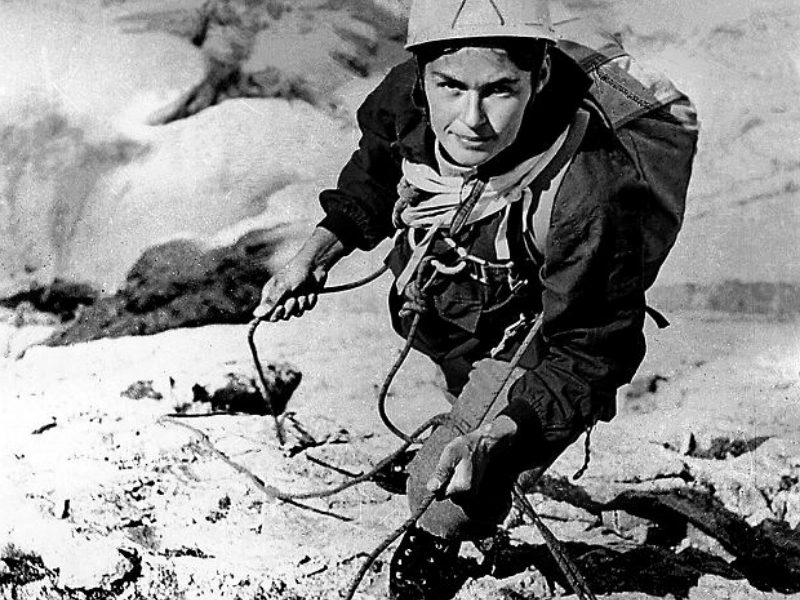 A proper equipment set is essential for mountaineering. This is due to the fact that the sport has a high physical fitness requirement and can be harmful. Furthermore, it requires going across a variety of terrain while toting a bulky backpack. By fortifying muscles and bones, the activity enables the body to adjust and handle increasingly demanding tasks in the future.
Mountaineers also have to deal with negotiating crevasses and whiteouts. Since peaks fluctuate from year to year, these are frequently inevitable. For example, a class 0 top may provide an easy snow approach in the spring and summer, but when the glacier melts, it might become a jumbled ice maze.
Last but not least, connecting with nature through mountaineering enhances the soul. Climbers are able to take in views and landscapes that are not often available in contemporary cities. By finding happiness in the little things, it also aids in the development of a more optimistic outlook on life. They can have happier and longer lives if they follow this beneficial technique.
A proper equipment set is essential for mountaineering. This is due to the fact that the sport has a high physical fitness requirement and can be harmful. Furthermore, it requires going across a variety of terrain while toting a bulky backpack. By fortifying muscles and bones, the activity enables the body to adjust and handle increasingly demanding tasks in the future.
Mountaineers also have to deal with negotiating crevasses and whiteouts. Since peaks fluctuate from year to year, these are frequently inevitable. For example, a class 0 top may provide an easy snow approach in the spring and summer, but when the glacier melts, it might become a jumbled ice maze.
Last but not least, connecting with nature through mountaineering enhances the soul. Climbers are able to take in views and landscapes that are not often available in contemporary cities. By finding happiness in the little things, it also aids in the development of a more optimistic outlook on life. They can have happier and longer lives if they follow this beneficial technique.
